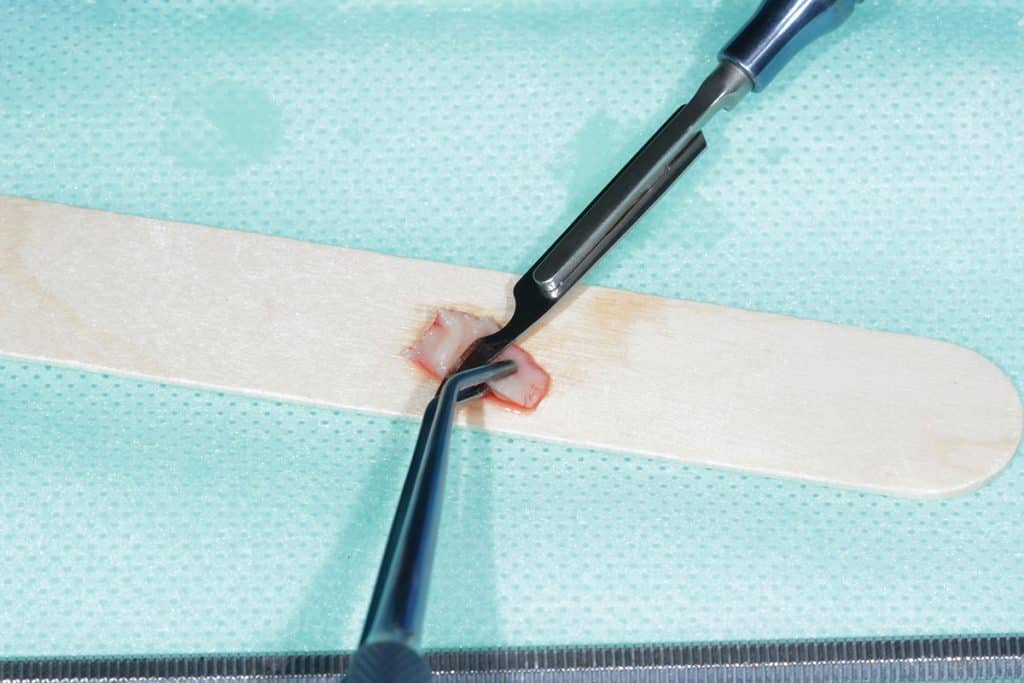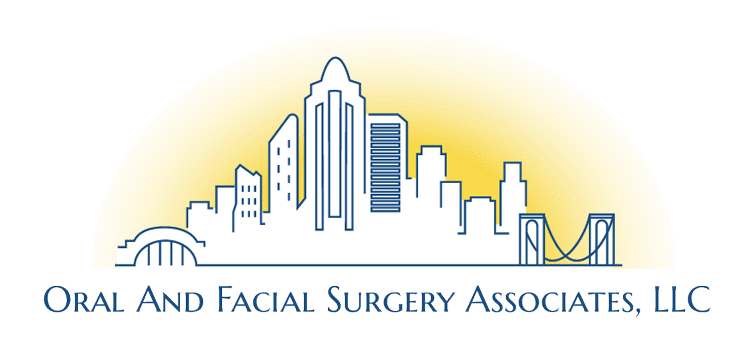How to Prepare for Bone Grafting Surgery in Cincinnati: A Patient's Checklist

Undergoing any surgical procedure requires careful preparation to ensure a smooth process and optimal recovery. Bone grafting, a specialized procedure often necessary for dental implants or to restore jaw structure, is no exception. Proper preparation can significantly contribute to a successful outcome, reduce anxiety, and facilitate a more comfortable healing period. At Oral and Facial Surgery Associates, our priority is your well-being, and we are committed to providing you with comprehensive guidance every step of the way.
This patient checklist is designed to help you navigate the days and weeks leading up to your bone grafting surgery. By following these structured recommendations, you can approach your procedure with confidence, knowing you have taken all the necessary steps for a positive experience.
Your Pre-Surgical Consultation and Procedure Plan
The first and most critical step in your preparation is a thorough consultation with your oral surgeon. This meeting is foundational to your care, establishing a clear understanding of the procedure and addressing any personal health considerations.
Understanding the Bone Grafting Procedure
During your consultation, your surgeon will provide a detailed explanation of the bone grafting process. Bone grafting involves transplanting bone tissue to an area of the jaw that has insufficient bone volume. This may be necessary to support a future dental implant, repair bone loss from periodontal disease, or restore the jaw's contour after tooth extraction.
Your surgeon will discuss the specific type of bone graft being used, which could be:
- Autograft: Bone taken from another area of your own body.
- Allograft: Medically processed bone from a human donor.
- Xenograft: Bone sourced from an animal, typically a cow, and processed for safety and compatibility.
- Alloplast: A synthetic, biocompatible material.
Understanding the source of the graft material and the surgical technique involved will help demystify the procedure and allow you to ask targeted questions.
Reviewing Your Medical History
A comprehensive review of your medical history is essential for patient safety. Be prepared to discuss:
- All current medications, including prescriptions, over-the-counter drugs, and supplements.
- Any known allergies, particularly to medications or anesthesia.
- Past surgeries and any complications you may have experienced.
- Chronic health conditions, such as diabetes, hypertension, or autoimmune disorders.
This information allows our team to create a personalized surgical plan that minimizes risk and accounts for your unique health profile. Your honesty and thoroughness during this review are vital for your safety.
Following Pre-Operative Instructions
Based on your consultation, you will receive a specific set of pre-operative instructions. These are not general guidelines but are tailored to your procedure and health status. They may include directives on fasting before surgery if you are receiving IV sedation or general anesthesia. Adhering strictly to these instructions is crucial for preventing complications.
Medical and Lifestyle Adjustments Before Surgery
In the weeks and days leading up to your bone grafting surgery, certain lifestyle and dietary adjustments are necessary to prepare your body for the procedure and promote effective healing. These changes are designed to optimize your health and reduce the risk of complications.
Managing Medications and Supplements
Your oral surgeon will provide precise instructions regarding your current medications. It is common to be asked to temporarily stop taking certain drugs that can interfere with blood clotting or anesthesia. These often include:
- Blood thinners: Medications like aspirin, warfarin (Coumadin®), and clopidogrel (Plavix®) may need to be paused.
- Non-steroidal anti-inflammatory drugs (NSAIDs): Ibuprofen (Advil®, Motrin®) and naproxen (Aleve®) can affect bleeding.
- Certain supplements: Herbal supplements such as fish oil, vitamin E, ginkgo biloba, and ginseng can also increase bleeding risk.
Never stop taking any prescribed medication without explicit direction from your surgeon and consulting with your primary care physician. We will coordinate with your other healthcare providers to ensure your care is managed safely.
Dietary and Lifestyle Preparations
Proper nutrition can support your immune system and aid in recovery. In the days before your surgery, focus on a balanced diet rich in vitamins and protein. Staying well-hydrated is also important.
You will be instructed to cease all smoking and alcohol consumption for a specified period before and after the surgery. Nicotine constricts blood vessels, which can impair blood flow to the surgical site, delay healing, and increase the risk of infection and graft failure. Alcohol can interfere with anesthesia and medications and contribute to dehydration.
Arranging Your Post-Surgery Care and Environment
Planning for your recovery period is just as important as preparing for the surgery itself. A comfortable and supportive environment is key to a smooth and speedy healing process. Taking care of these arrangements ahead of time allows you to rest and recover without added stress.
Securing a Driver and Post-Operative Caretaker
If your procedure involves IV sedation or general anesthesia, you will not be able to drive yourself home. It is mandatory to arrange for a responsible adult to transport you home and stay with you for several hours—and preferably for the rest of the day—following your surgery. The effects of anesthesia can linger, affecting your judgment and coordination. Having someone available to assist you with simple tasks, prepare soft foods, and manage your medications is essential for your immediate post-operative safety.
Preparing Your Home for Recovery
Take some time to prepare your home to be a comfortable recovery space. This includes:
- Stocking your kitchen: Purchase soft foods that are easy to chew and swallow. Good options include yogurt, smoothies, applesauce, pudding, mashed potatoes, and soups. Avoid foods that are hard, crunchy, or require significant chewing.
- Setting up a rest area: Designate a comfortable spot with pillows to keep your head elevated, which helps reduce swelling. Have blankets, entertainment (books, movies), and your phone within easy reach.
- Filling prescriptions: Fill any prescriptions for pain medication or antibiotics before your surgery date so they are ready when you get home.
Having everything in place beforehand ensures you can focus entirely on resting and healing after you return from our office.
Your Path to a Successful Recovery
Thorough preparation is a key component of a successful surgical outcome. By following this checklist and the specific guidance provided by our team, you are taking an active role in your own health and well-being. This proactive approach helps minimize potential complications and sets the stage for a smooth, efficient recovery.
At Oral and Facial Surgery Associates, we are dedicated to providing the highest standard of care. Our team of Board-Certified and Board-Eligible Oral and Maxillofacial Surgeons is here to ensure you feel informed, confident, and comfortable throughout your entire treatment journey.
Frequently Asked Questions About Bone Grafting
How long is the recovery period for bone grafting surgery?
The initial recovery period for a bone graft typically lasts one to two weeks, during which you can expect some swelling, bruising, and discomfort. Most patients can return to work or school within a few days, depending on the extent of the procedure and their physical demands. However, the complete healing and integration of the bone graft is a much longer process, often taking several months. During this time, the grafted material fuses with your natural bone to create a solid foundation. Your surgeon will monitor your progress through follow-up appointments and imaging to determine when the site is fully healed and ready for the next phase of your treatment, such as dental implant placement.
Will I be in a lot of pain after a bone graft?
Patient comfort is a top priority at our practice. While some discomfort is normal after any surgical procedure, we take several measures to manage it effectively. You will receive specific instructions on how to use prescribed pain medications and over-the-counter anti-inflammatory drugs. Applying ice packs to the outside of your face over the surgical area for the first 24-48 hours can also significantly reduce swelling and pain. Most patients report that the discomfort is manageable and subsides within a few days. Following all post-operative instructions carefully is the best way to ensure a comfortable recovery.
For more than 35 years, Oral and Facial Surgery Associates has provided comprehensive oral and facial surgeries for the greater Cincinnati area. Your comfort and safety are always our top priority as we strive to provide the highest level of care for every patient. To schedule a consultation, please contact us.
